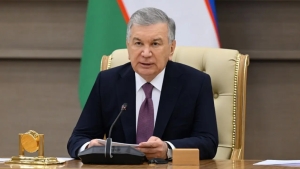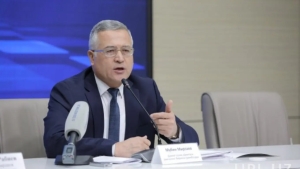Uzbekistan will reach a high-income country status by 2042

The World Bank has published a report on "Accelerating Growth through Entrepreneurship, Technology, and Innovation" regarding the countries of Europe and Central Asia. This was reported by Zamin.uz.
The report provides forecasts on when developing countries in the region will join the ranks of high-income countries based on per capita income. According to the World Bank's calculations, the threshold for high-income countries in 2023 is set at an annual income of $14,005 per capita.
The report states that Kazakhstan and Turkmenistan are expected to reach this threshold in approximately 40 years. Kyrgyzstan, on the other hand, may achieve a high-income level in 70 years.
Uzbekistan and Tajikistan, however, are projected to reach this level in over 100 years. Expert Mirkomil Kholboev believes that these forecasts are based on the average growth rates of the last decade.
He also took into account the economic downturn during the pandemic and the deep recessions in some countries. According to Kholboev's recalculations, considering the recovery rates post-pandemic, Kazakhstan could reach high-income status in 2026, Turkmenistan in 2034, Tajikistan in 2037, and Uzbekistan in 2042.
In 2024, Uzbekistan's total income reached 896.3 trillion soums. This represents an 18.5% nominal growth, and an 8.1% real growth when accounting for inflation.
Per capita total income increased from 20 million soums to 24.1 million soums. Assuming an average dollar exchange rate of 12,500 soums, this translates to an annual income of between $1,600 and $1,900.
The World Bank report notes that Uzbekistan's economy is expected to grow by approximately 5.9% in 2025 and 2026. Additionally, in 2024, personal remittances from Russia to Uzbekistan are projected to increase by 30%, approaching $15 billion.
Remittances are a significant part of GDP. For example, in Tajikistan, this figure is close to 40%, in Kyrgyzstan it is over 20%, and in Kosovo, it is around 18%.
The average figure is 7%. Without remittances, the poverty rate in Uzbekistan could have been twice as high.
Moreover, Uzbekistan ranks among the top ten countries in the world in terms of remittance inflows. In 2024, the budget deficit was 3.3% of GDP, with the reduction of energy subsidies playing a significant role.
In conclusion, according to the World Bank report, Uzbekistan needs to implement long-term and consistent economic reforms to join the ranks of high-income countries. Maintaining high levels of economic growth, expanding export potential, and investing in innovation are crucial factors in enhancing the country's competitiveness (source: World Bank reports, 2023).







